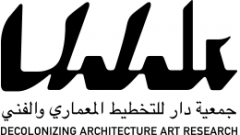Posted: 03.08.2009
Talk by Sari Hanafi, professor at the American University in Beirut in conversation with Irit Rogoff, Professor of Visual Cultures, Goldsmiths, University of London
The return of refugees to their country of origin is not only a subject of the right of return but of the rites of return. This return, seen as a ‘natural’ and thus ‘problem free’ process, is one of the major misleading myths surrounding the process of repatriation in the imaginaries of many refugees and Palestinian politicians. This can be apprehended only by placing it in the broader context of movement across or around borders by Palestinians. For instance, networks and relationships with other people as social capital are as important as a nostalgic sense of place in understanding voluntary migration, forced migration, and return migration.
By drawing on insights from various disciplinary approaches to borders, boundaries, and social networks, one can analyze the manifold implications of some socio-economic and cultural factors for an eventual Palestinian return migration and/or their movements inside/outside the region. Boundaries are symbolic, cultural, and social, constituting a cognitive or mental geography which influences the transnational ties between different Palestinian communities and shapes their identities. By the same token, the impermeability of some borders has constructed and reinvented new boundaries of difference and distinctiveness among these communities. First, displacement and separation of refugees from the place of origin inevitably created new boundaries between them and those who remained. Second, the institutions and readjustments of geopolitical borders after 1948 and 1967 fostered the emergence of such boundaries. Finally, the crossing of borders separating refugees from their place of origin entails power relations and conflicts that reinforce boundaries between groups (Parizot, 2008). Some boundaries remain, some are invented, some are remembered: this is the burden of borders in this highly partitioned part of the world.This talk will address directly and indirectly the question of the consequences of the movement of Palestinian populations over the sixty-year period since the first exodus in 1948 and the different identities they have developed. There have been several waves of refugees caused by the expanding power of Israel, migrations of Palestinian wo/men and sometimes families in search of better economic circumstances in the Arab world and beyond, and movements of individuals across borders to profit from the differences between the two sides of a border. With all this, there is a yearning to return to the point of departure.
Drawn on material collected over 14 years, through unstructured interviews with different categories of Palestinians living in the Palestinian Territory and in the diaspora, the objective of this article is to discuss the interplay between three key factors which impact the construction of “palestinian-ness” and will impact the process of return: geographical borders, social boundaries, and nation-state policies in the region. The study of the interplay between them will be used to depict: 1- the problematic relationship between the diaspora and the center (the Palestinian Territory) in the current/eventual return movement of Palestinian refugees and the absence of the diaspora as a social space; 2- the flexibility of transnational strategies adopted by the Palestinians, whether citizens, refugees, current returnees, or transmigrants; 3- the inflexibility of the policies of the nation-states in the region. The Palestinian National Authority (PNA), for example, seems to react negatively to the transnational practices of Palestinians rather than facilitate them, and this will have implications for the solution of the refugees problem. Indeed, the current nation-state model which is based on the “trinity” of nation-state-territory does not allow for a solution to the Palestinian refugees problem. A new model of nation-state must be conceptualized, based on flexible borders, flexible citizenship and some kind of separation between the nation and state, what I will call the extra-territorial nation-state. This model of nation-state is structural and marks a intermediary model between a territorially-based nation-state and a “de-territorialized” one. A rethinking of all traditional political/legal categories in the Middle East is necessary to resolve the problem of refugees in countries where they constitute sometimes one-third of the population. It is also important for tackling the question of the identity and the mobility of a whole population.
…followed by a series of questions of Irit Rogof, about the prefix ‘RE’ in all these projects; ‘Return’, ‘Recolonization’ and ‘Reconstruction’ – in the sense that it means anything but, an attempt to recouperate what was. So to some extent, if one is thinking in terms of a critical epistemology, the ‘RE’ is the recognition that one is starting from the middle, rather than from the beginning – that there is a set of circumstances that are there, as well as feelings and political allegiances, and one is making something in their wake, rather than creating some brand new set of circumstances. So maybe a mode of ‘reterritorialisation’ ?
_______________________________________________
1000 THOUGHTS 1 BETHLEHEM NIGHT –
A series of informal meetings designed to open up a space for the exchange of thoughts and project developments
Thursday 6 August 2009, 07.30 pm
location: Beit Sahour, Suk Ishab Madrasa Al Chatolic Street
Daar Sandi Hilal & Alessandro Petti
0598754572
www.decolonizing.ps
www.statelessnation.org
http://ramallahsyndrome.blogspot.com/
_______________________________________________
